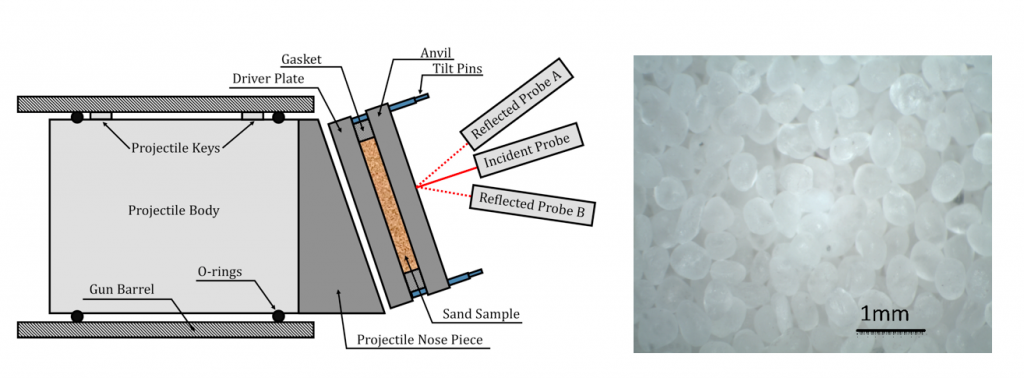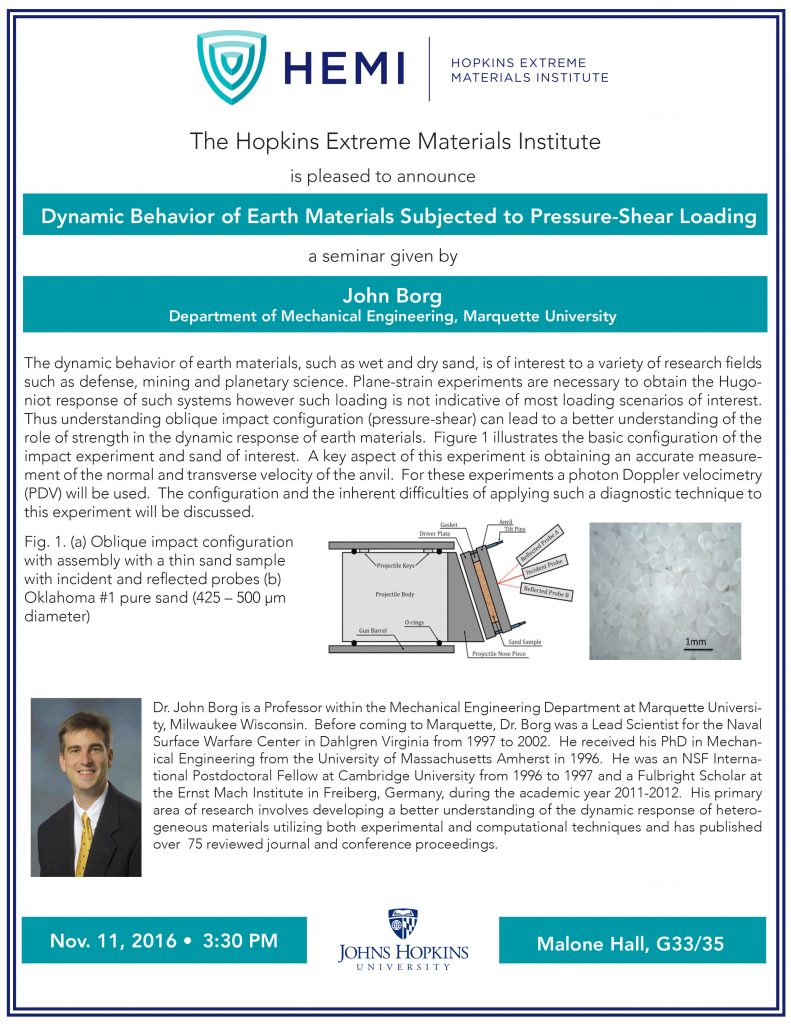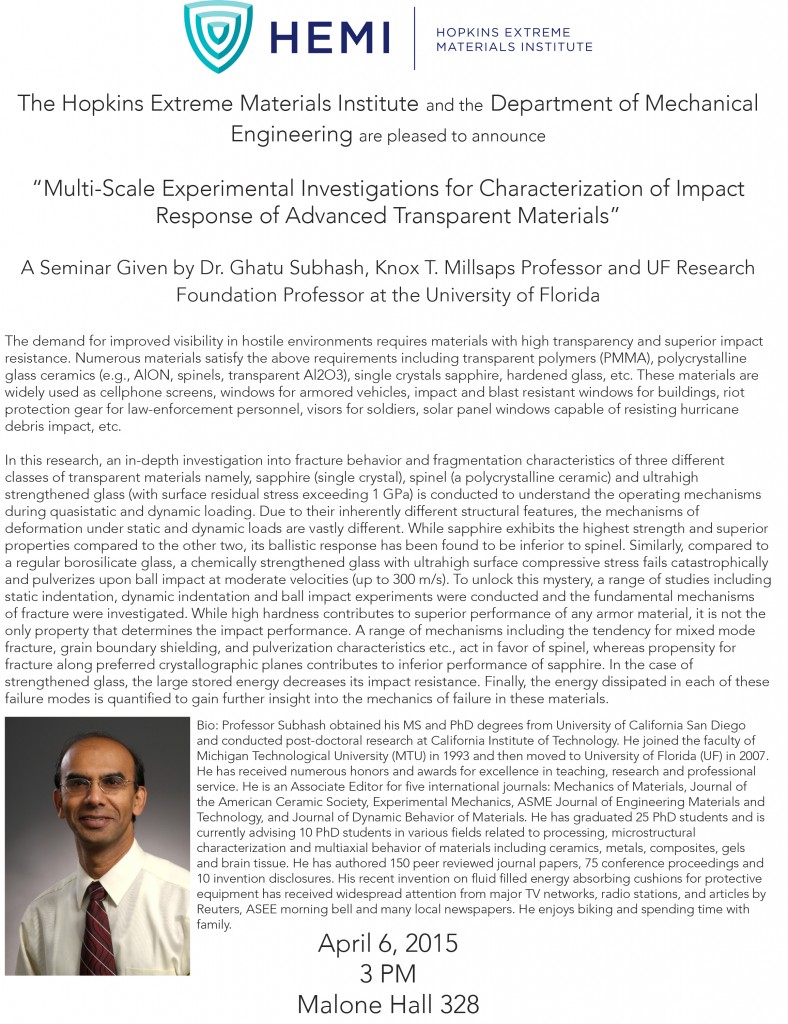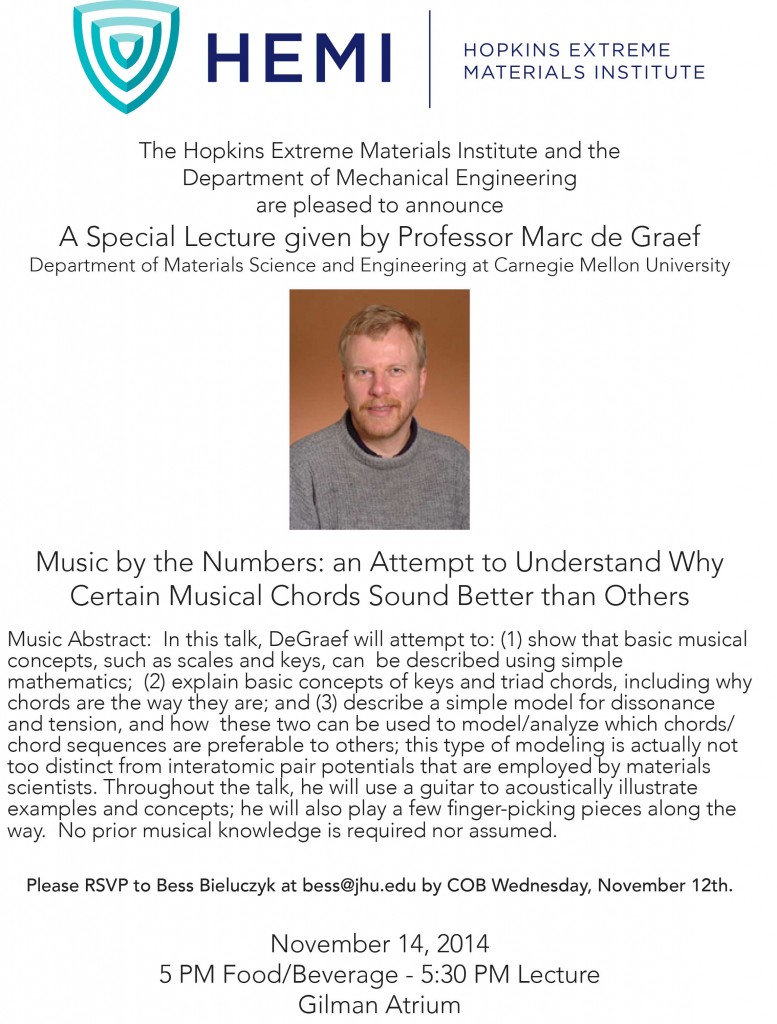Dynamic Behavior of Earth Materials Subjected to Pressure-Shear Loading
Dr. John Borg, Prof. of Mechanical Engineering, Marquette University
The dynamic behavior of earth materials, such as wet and dry sand, is of interest to a variety of research fields such as defense, mining and planetary science. Plane-strain experiments are necessary to obtain the Hugoniot response of such systems however such loading is not indicative of most loading scenarios of interest. Thus understanding oblique impact configuration (pressure-shear) can lead to a better understanding of the role of strength in the dynamic response of earth materials. Figure 1 illustrates the basic configuration of the impact experiment and sand of interest. A key aspect of this experiment is obtaining an accurate measurement of the normal and transverse velocity of the anvil. For these experiments a photon Doppler velocimetry (PDV) will be used. The configuration and the inherent difficulties of applying such a diagnostic technique to this experiment will be discussed.
Seminar will be held at 3:30 PM in Malone G33/35.

Fig. 1. (a) Oblique impact configuration with assembly with a thin sand sample with incident and reflected probes (b) Oklahoma #1 pure sand (425 – 500 μm diameter)






